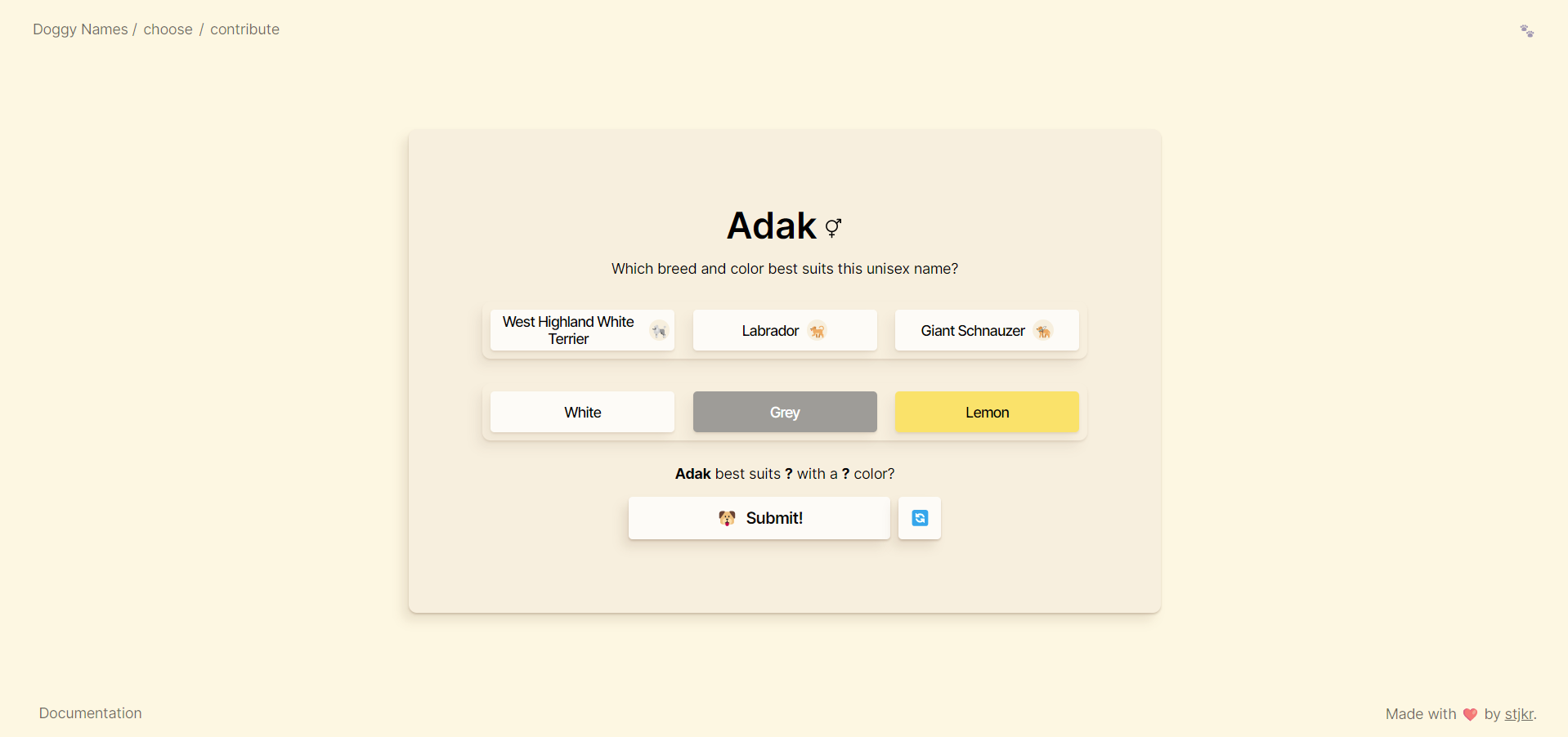Doggy Names
Tech stack: Next.js, PostgreSQL
Links: View Project, View LinkedIn Post
Doggy Names represents my inaugural exploration into modern web development with Next.js and PostgreSQL, creating an innovative platform that helps pet owners discover the perfect names for their canine companions. This project demonstrates the successful transition from traditional web development to modern full-stack frameworks.
The application employs sophisticated algorithms to match dog names with specific characteristics including breed, color, and gender. The recommendation engine analyzes thousands of name-characteristic combinations to provide personalized suggestions that reflect both the dog's physical attributes and the owner's preferences.
The user contribution system creates a collaborative environment where dog owners can participate in improving the recommendation algorithm. Users are presented with names alongside multiple breed and color options, and their selections contribute valuable data that enhances the matching accuracy for future users.
Built with Next.js, the application leverages server-side rendering for optimal SEO performance, static site generation for fast loading times, and API routes for seamless database integration. The modern React architecture ensures smooth user interactions and responsive design across all device types.
PostgreSQL provides robust relational data management, handling complex queries that analyze name-characteristic relationships, user contributions, and recommendation algorithms. The database design supports efficient data retrieval and scalable growth as the user base and data volume expand.
The infrastructure demonstrates cloud deployment expertise, with PostgreSQL hosted on a self-managed Debian server using Vultr cloud services. This setup showcases understanding of server administration, database management, security configuration, and performance optimization in production environments.
The project includes comprehensive data visualization features, showing name popularity trends, breed-specific preferences, and user contribution statistics. These insights help users understand naming patterns and make informed decisions about their pet's identity.

